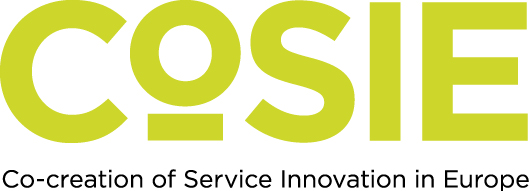Innovation Is Muddling through Ignorance

Every self-respecting organisation takes knowledge management seriously. This is understandable for many reasons – not least because, regardless of industry, the survival and success of an organisation depends on its ability to acquire, analyse and utilise information. For many organisations, knowledge is not only the most important factor in production, but also the essential output of operations.
Knowledge management is a good goal, but it doesn’t happen by itself. Even if a lot of effort is invested in it, the goal will not always be achieved. There are multiple reasons for this. At the individual level, cognitive biases direct our attention to things that reinforce what we already know, not necessarily to things that are important. This is because our mind may not be particularly interested in the actual state of things, but in its own internal balance (Haidt 2012). Organisations also suffer from various types of biases. They can be guilty of both systematically overproducing information and deliberately avoiding it (Feldman & March 1981), while both consume resources but create no value. Too often knowledge management becomes an organisational convention, which is justified by better decisions, but where the pursuit of good sometimes results in unintended and unwanted outcome.
Knowing is intuitively perceived as virtue, and ignorance as evil. This is understandable, but also regrettable. The juxtaposition of knowledge and ignorance is superfluous, since they are not dichotomously different, but rather different sides of the same coin. The symbiosis of knowledge and ignorance has long been advocated by philosophers and other scholars. Robert Merton (1971), for example, put forward the idea of ignorance as a driving force for action. According to him, functional ignorance is the “specified ignorance as the express recognition of what is not yet known but needs to be known in order to lay a foundation for still more knowledge”. Specified ignorance is “often a first step toward supplanting that ignorance with knowledge” (Merton 1957).
The experiment-based development of public services can be seen as a manifestation of functionalised ignorance. Experimentation is a cyclical process where the diagnosis of the problem (limiting the ignorance) guides the development of solutions and their evaluation (arousing curiosity and meaningful intelligence). Experiment-based development is politically attractive because it allows for the gradual domestication of ignorance, learning from failures and, if the situation so requires, a rapid change of direction.
Ignorance is relatively easy to identify but harder to define exactly. Compared to knowledge, ignorance, especially as an organisational phenomenon, has been much less studied (Seidl 2007, Letiche 2007). This is both confusing and unfortunate. It is confusing because ignorance is more common than knowledge, and unfortunate because ignorance may help to understand the challenges and opportunities of knowledge management in a new way. Focusing on ignorance sharing can reveal a whole new kind of reality. Ignorance is also an underutilised resource. Roberts (2012), for example, has suggested that ignorance should not be seen as dysfunctional for an organisation, but as a natural thing that can be harnessed for the benefit of the organisation. In addition Harvey et al. (2001) have stressed that ”contrary to knowledge creation research, which is oriented toward studying the anticipatory power of knowledge innovation, ignorance specification research should take the opposite orientation toward the archeology of cognition to identify the referents of stakeholder symbolic perceptions and interests, and thereby explain the underlying informal mechanisms that shape the framing of their evaluations and interpretations.”
Following Roberts’ (2012) thinking, ignorance management can be divided into negative and positive strategies. In negatively oriented ignorance management, the organisation seeks to maintain cognitive order by suppressing perceptions and choices that threaten its existing belief system. This can be beneficial in terms of efficiency, but at the expense of creativity. In positively oriented ignorance management, the organisation encourages the discovery of ignorance, as it believes it fuels curiosity and enhances the organisation’s ability to question dominant beliefs. What an organisation may lose in short-term efficiency it will probably gain in the long-term in the form of increased innovativeness. Innovation is always some kind of disruption in an organisation, as it almost always means that the benefits achieved by some are threatened. The ignorance of innovation is rooted in the fact that future events do not follow the course of past events and that knowledge of the future itself is always incomplete.
Despite the negative connotations related to ignorance, not all ignorance is bad. Metaphorically speaking, ignorance can be compared to blood cholesterol. While LDL cholesterol clogs arteries and HDL cholesterol keeps them open, bad ignorance makes individuals fearful and diminishes the organisation’s ability to interpret their environment, while good ignorance keeps people curious and fuels the organisation’s courage.
Writer: Harri Jalonen, Turku University of Applied Sciences (harri.jalonen@turkuamk.fi, Twitter: @Jalonen)
References
Feldman, M. S. & March, J. G. (1981). Information in organizations as signal and symbol. Administrative Science Quarterly, 26(2), 171–186.
Haidt, J. (2012). The Righteous Mind: Why Good People are Divided by Politics and Religion. Panteon, New York, NY.
Harvey, M. G., Novicevic, M. M., Buckley, M.R. & Ferris, G. R. (2001). A historic perspective on organizational ignorance. Journal of Managerial Psychology, 16(5/6): 449–468.
Head, B. W. (2015). Toward more “evidence-informed” policy making? Public Administration Review, 76(3): 472–484
Letiche, H. (2009). The dark side of organizational knowing. Emergence: Complexity and Organization, 11: 1–8.
Merton, R. K. (1957). Social Theory and Social Structure. Free Press, New York, NY.
Merton, R. K. (1971). The precarious foundations of detachment in sociology. In Tiryakian, E. A. (eds.) The Phenomenon of Sociology, 188–199. Appleton-Century-Crofts, New York, NY.
Roberts, J. (2012). Organizational ignorance: towards a managerial perspective on the unknown. Management Learning, 44(3): 215–226
Roberts, J. & Armitage, J. (2008). The ignorance economy. Prometheus, 26(4): 335–354.
Seidl, D. (2007). The dark side of knowledge. Emergence: Complexity and Organization, 9: 1–12.
